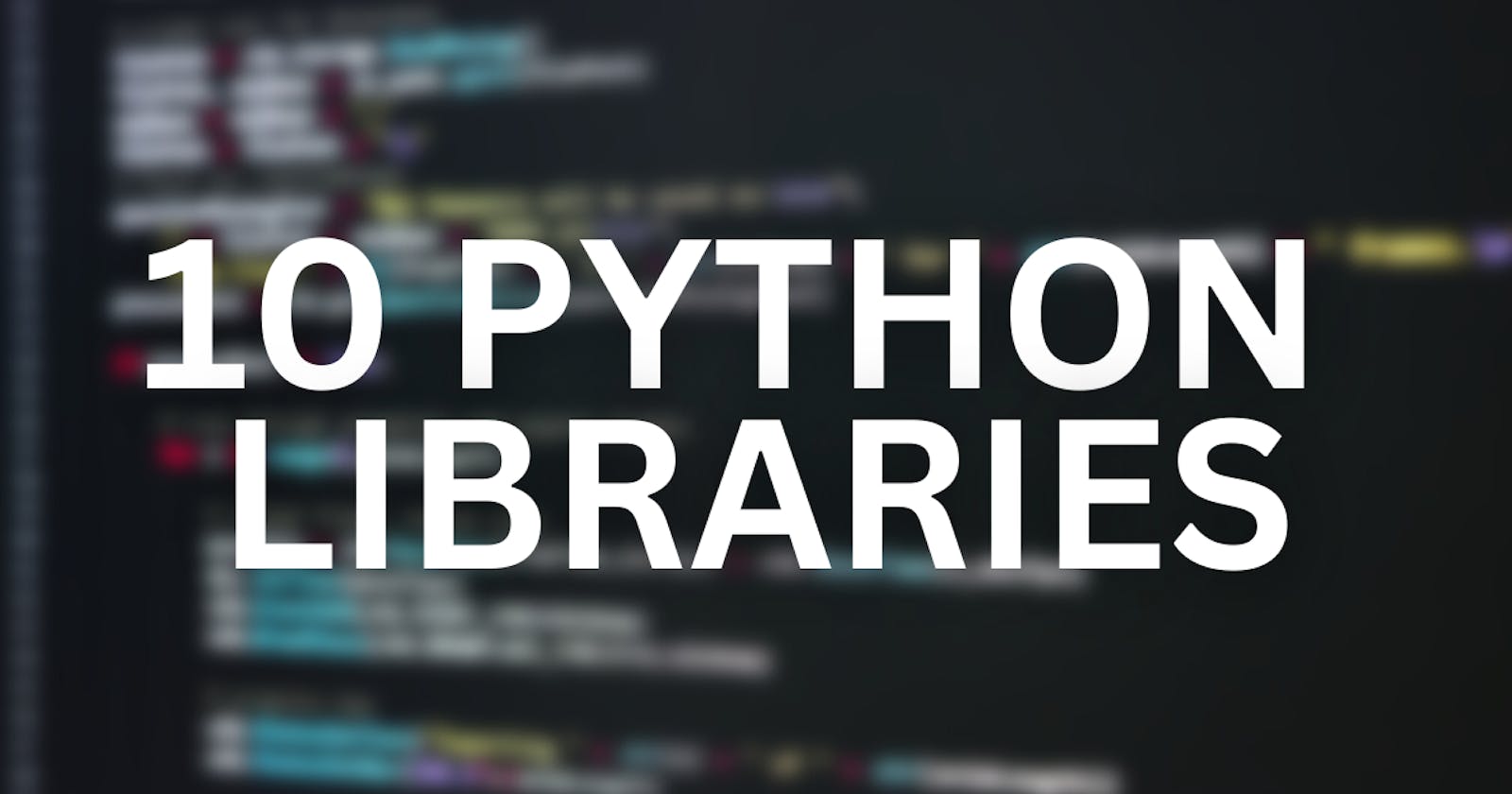Python is a well-known and flexible programming language. It is used in many different fields, including data science, web development, and automation. Python is well-known for its ease of use and simplicity. It has a clear and concise syntax, making it simple to read and understand for beginners. Python also has a large and active community that offers help and resources to newcomers and developers. Python has a robust ecosystem of libraries and frameworks, making it a versatile tool for a variety of tasks.
Here are ten Python libraries you should be familiar with.
Pandas
Pandas is a powerful Python library for data manipulation and analysis. It provides tools for working with large datasets in a convenient and intuitive way. Pandas allows developers to easily read, filter, and transform data, as well as perform operations such as aggregation, merging, and joining. Pandas provides a range of data structures, including Series, DataFrame, and Panel, which are optimized for different types of data. Pandas is widely used in data science and analytics projects, and integrates well with other popular libraries such as NumPy and Matplotlib.
Flask
Flask is a lightweight Python microframework for web development. It's simple and easy to use, making it a popular choice for creating small to medium-sized web applications. Flask allows developers to define routes, which map URLs to functions that handle HTTP requests. Flask provides a built-in web server and supports a range of web templates and languages. Flask is often used for creating APIs, microservices, and webhooks, and integrates well with other libraries and frameworks such as SQLAlchemy and Jinja.
https://flask.palletsprojects.com/en/2.2.x/
Scikit-learn
Scikit-learn is a popular Python library for machine learning. It provides a wide range of algorithms for tasks such as classification, regression, clustering, and dimensionality reduction. Scikit-learn is designed to be easy to use, and provides a consistent interface for fitting, transforming, and evaluating models. Scikit-learn integrates well with other libraries such as NumPy and Pandas, and supports a range of data formats and evaluation metrics. Scikit-learn is commonly used in data science and analytics projects, and is often used in conjunction with other libraries such as TensorFlow and Keras for deep learning.
https://scikit-learn.org/stable/
TensorFlow
TensorFlow is a popular Python library for deep learning. It allows developers to define and train neural networks for tasks such as image recognition, natural language processing, and time series analysis. TensorFlow provides a range of optimization algorithms, regularization techniques, and loss functions, and allows developers to easily visualize and debug their models. TensorFlow is highly scalable and can run on a variety of platforms, including CPUs, GPUs, and TPUs. TensorFlow is often used in conjunction with other libraries such as Keras, which provides a higher-level interface for building and training neural networks.
NumPy
NumPy is a fundamental Python library for scientific computing. It provides tools for working with arrays and matrices, such as creating, slicing, indexing, and reshaping arrays, as well as performing mathematical operations such as addition, subtraction, multiplication, and division. NumPy provides support for a range of data types, including integer, float, and complex, as well as support for functions such as linear algebra, statistics, and random number generation. NumPy is often used in conjunction with other libraries such as Pandas and Matplotlib, and is commonly used in scientific and engineering projects.
Matplotlib
Matplotlib is a popular Python library for data visualization. It provides a range of plots, charts, and visualizations, which can be customized and styled using a range of options and parameters. Matplotlib allows developers to create static, animated, and interactive visualizations, and supports a range of formats for exporting and saving figures. Matplotlib is often used in conjunction with other libraries such as Pandas and Seaborn, and is commonly used in data analysis and exploratory data science projects.
Pygame
Pygame is a popular Python library for game development. It provides tools for creating 2D games, such as handling input from keyboard, mouse, and gamepad, rendering graphics and audio, and managing game states and scenes. Pygame provides a range of built-in modules and functions, such as sprite and image classes, sound and music classes, and collision detection functions. Pygame also provides support for creating games using object-oriented design, and allows developers to easily create games using a combination of Python and other languages such as C or C++. Pygame is popular among hobbyist game developers, and is often used to create simple games such as puzzle and arcade games.
Requests
Requests is a popular Python library for making HTTP requests. It simplifies the process of sending and receiving requests and responses, and provides support for common HTTP methods such as GET, POST, and DELETE. Requests allows developers to easily specify headers, cookies, and query parameters, and supports a range of authentication methods such as basic and digest authentication. Requests is often used in web scraping and API integration projects, and integrates well with other libraries such as Beautiful Soup and JSON.
https://requests.readthedocs.io/en/latest/
Beautiful Soup
Beautiful Soup is a Python library for web scraping. It allows developers to extract data from HTML and XML documents, and provides tools for navigating and parsing the resulting data. Beautiful Soup provides support for a range of HTML and XML parsers, and allows developers to easily extract data using CSS selectors, XPath expressions, and regular expressions. Beautiful Soup is often used in conjunction with other libraries such as Requests and Selenium, and is commonly used for collecting data from websites.
https://pypi.org/project/beautifulsoup4/
NLTK
NLTK is a powerful Python library for natural language processing. It provides tools for tokenizing, stemming, and lemmatizing text, as well as tools for analyzing syntax, semantics, and sentiment. NLTK provides support for a range of languages, including English, French, and Spanish, and allows developers to easily create and train custom models using machine learning algorithms. NLTK is often used in conjunction with other libraries such as scikit-learn and Gensim, and is commonly used in text analysis and machine learning projects.

